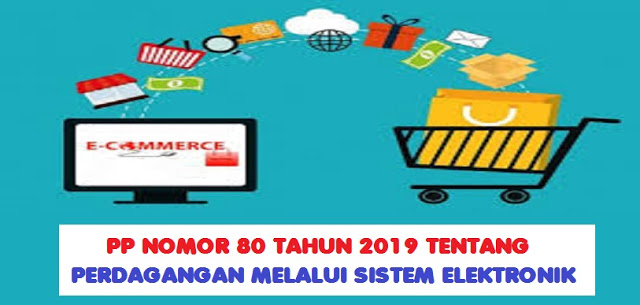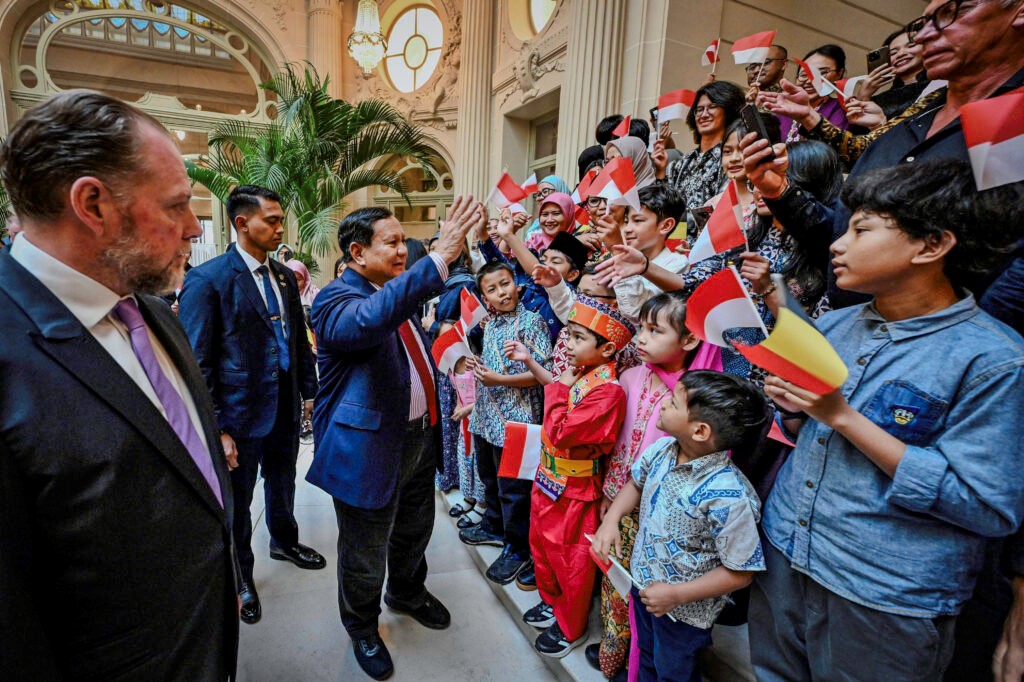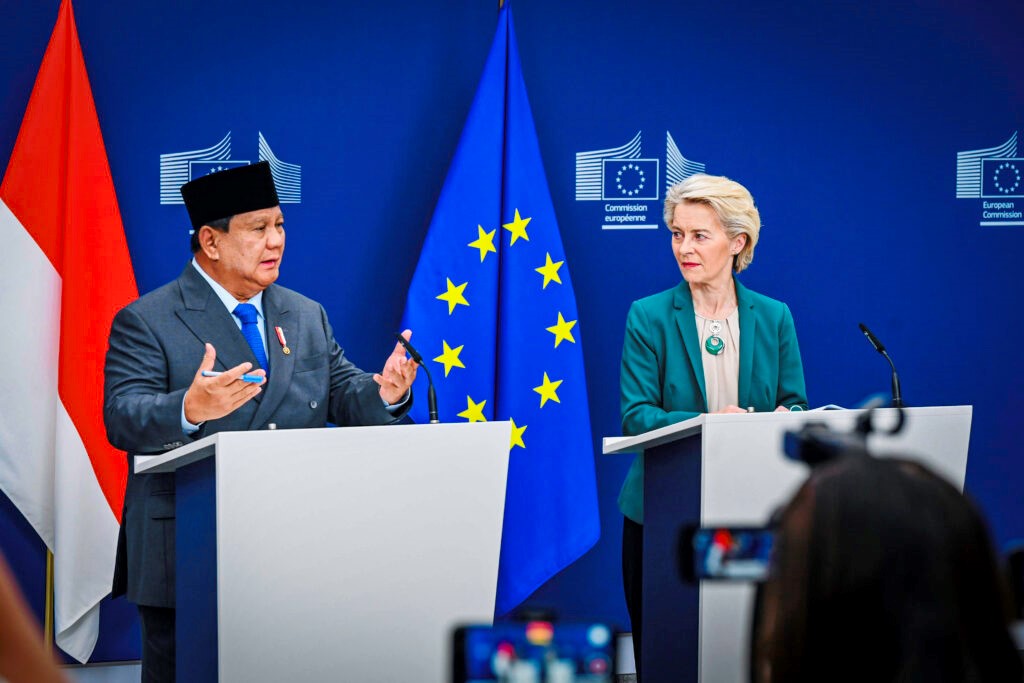Gov’t Issues New Regulation on E-Commerce

President Joko “Jokowi” Widodo on 20 November 2019 signed Government Regulation (PP) Number 80 of 2019 on Trade through Electronic Systems. The Regulation aims to implement the provisions of Article 66 of Law Number 7 of 2014 on Trade.
“Trade through Electronic System, hereinafter abbreviated as PMSE, is a trade whose transactions are carried out through a series of electronic devices and procedures,” Article 1 paragraph (2) of the Regulation reads.
The regulation states that in implementing PMSE, the parties must pay attention to the principles of: a. goodwill; b. prudence; c. transparency; d. trustworthiness; e. accountability; f. balance; and g. fairness and resilience.
PMSE, according to the Regulation, may be conducted by business actors, consumers, natural person, and state agencies in accordance with provisions of law and regulations.
The Regulation also states that foreign business actors who actively offer and/or conduct PMSE to consumers residing in the jurisdiction of the Unitary State of the Republic of Indonesia who meet specific criteria shall have physical presence in Indonesia and carry out permanent business activities in the jurisdiction of the Unitary State of the Republic of Indonesia.
The aforementioned criteria may be in the form of: a. number of transactions; b. transaction value; c. number of shipping packages; and/or d. the amount of traffic or access.
The foreign PMSE that fulfills the criteria shall appoint representatives domiciled in the jurisdiction of the Unitary State of the Republic of Indonesia who may act on behalf of the business actor,” Article 7 paragraph (3) of the Regulation reads.
“PMSE business activities are subject to provisions and taxation mechanisms in accordance with law and regulations,” Article 8 of the Regulation states.
The Regulation also states that parties in PMSE must have clear identity as legal subject, while each cross-country PMSE is obliged to comply with the provisions of laws and regulations governing export or import and the laws and regulations in the field of information and electronic transactions.
The Regulation also states that parties who conduct PMSE on Goods and/or Services that affect national security must obtain security clearance from the authorizing agency in accordance with law and regulations.
“Every business actor conducting PMSE must fulfill general requirements in accordance with law and regulations,” article 11 of the Regulation reads.
The Regulation further states that in conducting PMSE, business actors are obliged to support Government programs, among others: a. prioritize trade of domestic goods and/or services; b. increase the competitiveness of domestic products and/or services; and c. domestic PMSE are required to provide promotional space for domestic goods and/or services.
“Domestic PMSE and/or foreign PMSE are required to use certified electronic system in accordance with law and regulations,” Article 14 of the regulation reads.
According to the Regulation, business actors are required to have a business license in conducting PMSE business activities. However, the Intermediary Facility Provider is exempted from the obligation in the event of: a. it is not a party that receives a benefit directly from the transaction; or b. it is not directly involved in the contractual relationships of the parties conducting PMSE.
In order to facilitate business actors to have the business license, the application for the business license is conducted through an Electronically Integrated Business Licensing in accordance with provisions of law and regulations.
The Regulation also stipulates that domestic PMSEs and/or foreign PMSEs that do transaction with consumers are required to comply with the provisions of law and regulations in Indonesia.
In the event that the PMSE is detrimental to the consumer, according to the Regulation, the consumer may report the loss to the Minister, and the reported business actor must follow up the report.
“Business actors who do not follow up the report shall be listed in the priority list of supervision by the Minister. The priority list of supervision as intended can be accessed by the public,” Article 18 paragraph (3 and 4) of the Regulation reads.
The Regulation states that the Minister may seek to exclude business actors from the priority list of supervision in the event of: a. there is a consumer satisfaction report; b. there is an evidence of proper application of consumer protection; or c. the party has fulfilled the terms and conditions as regulated in law and regulations.
The Regulation further regulates that domestic traders and foreign traders who conduct PMSE by using facilities owned by domestic PMSEs and/or foreign PMSEs must fulfill terms and conditions in accordance with agreed service quality standards and provisions of law and regulations.
The domestic PMSE and/or foreign PMSE, according to the Regulation, shall: a. prioritize using Indonesian high-level domain names (dot id) for Electronic Systems in the form of internet websites; b. prioritize using an Internet Protocol (IP Address) in accordance with provisions of law and regulations; c. use server equipment that is placed in a data center in accordance with provisions of law and regulations; d. register the Electronic System in accordance with provisions of law and regulations; e. fulfill the technical requirements stipulated by the relevant agencies and obtain a Reliability Certificate in accordance with provisions of law and regulations; f. submit data and/or information regularly to government institutions that carry out government affairs in the field of statistics; and g. comply with the provisions of other sectoral laws and regulations related to licensing of PMSE business activities.
“If the PMSE contains illegal electronic information content, the domestic PMSE and/or foreign PMSE and Intermediary Facility Providers are responsible for the impact or legal consequences of the aforementioned illegal electronic information content,” Article 22 paragraph (1) of the regulation reads .
To avoid illegal electronic information content, domestic PMSE and/or foreign PMSE shall: a. provide the terms of use or the licensing agreement for its users in accordance with the provisions of the law and regulations; and b. provide technological control facilities and/or facilities for receiving reports or public complaints about the existence of illegal electronic information content or misuse of space in the Electronic System that it manages in accordance with provisions of law and regulations.
According to the Regulation, domestic PMSE and/or foreign PMSE are required to save: a. PMSE data and information related to financial transactions within a minimum period of 10 (ten) years after the data and information are obtained; and b. PMSE data and information that are not related to financial transactions within a minimum period of 5 (five) years after the data and information are obtained.
“The Government Regulation shall apply as of the date of its promulgation,” article 82 of the Government Regulation reads. The Regulation was promulgated by Minister of Law and Human Rights Yasonna H. Laoly on 25 November 2019. (Pusdatin/ES).
Translated by: Ridwan Ibadurrohman
Reviewed by: Yuyu Mulyani








